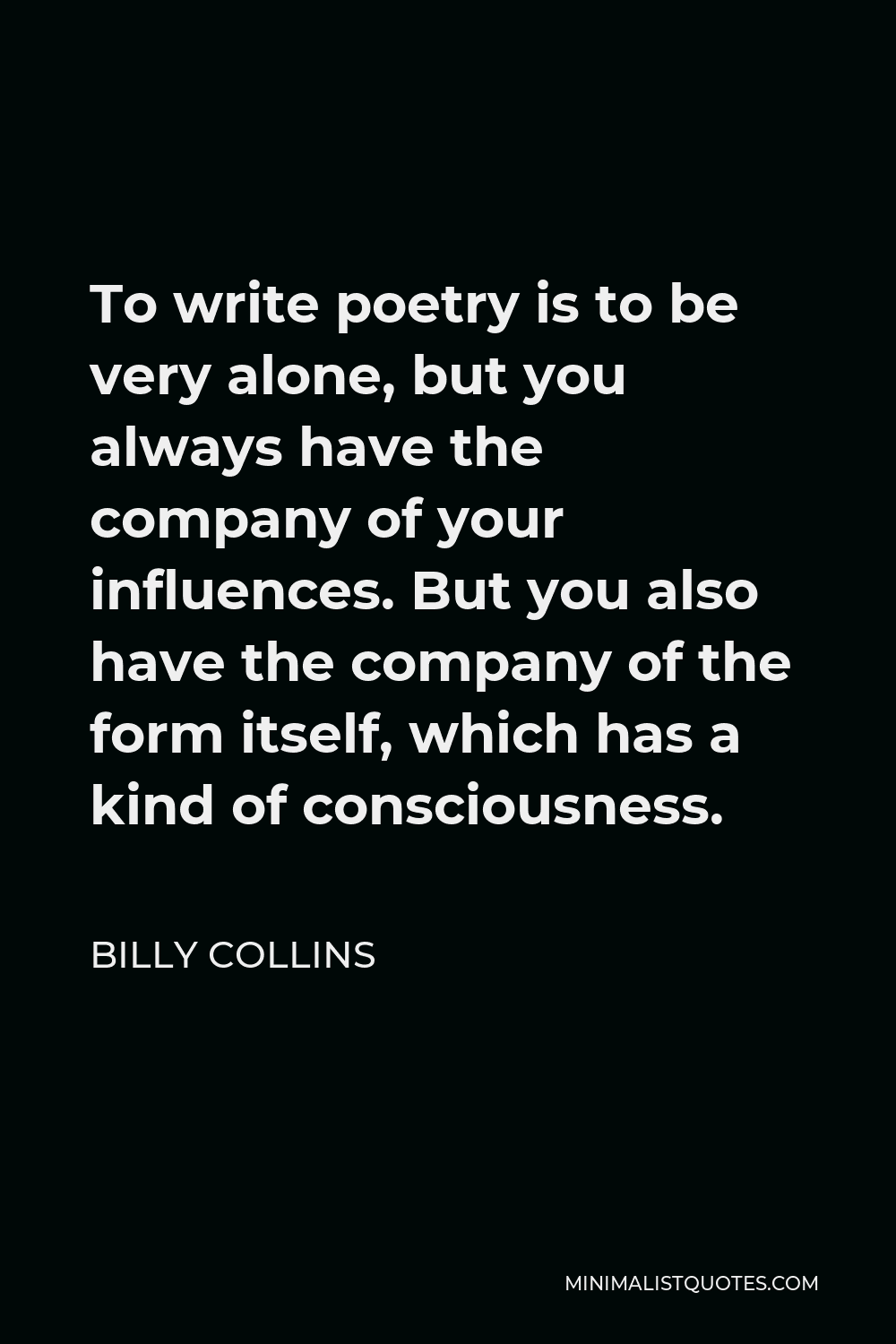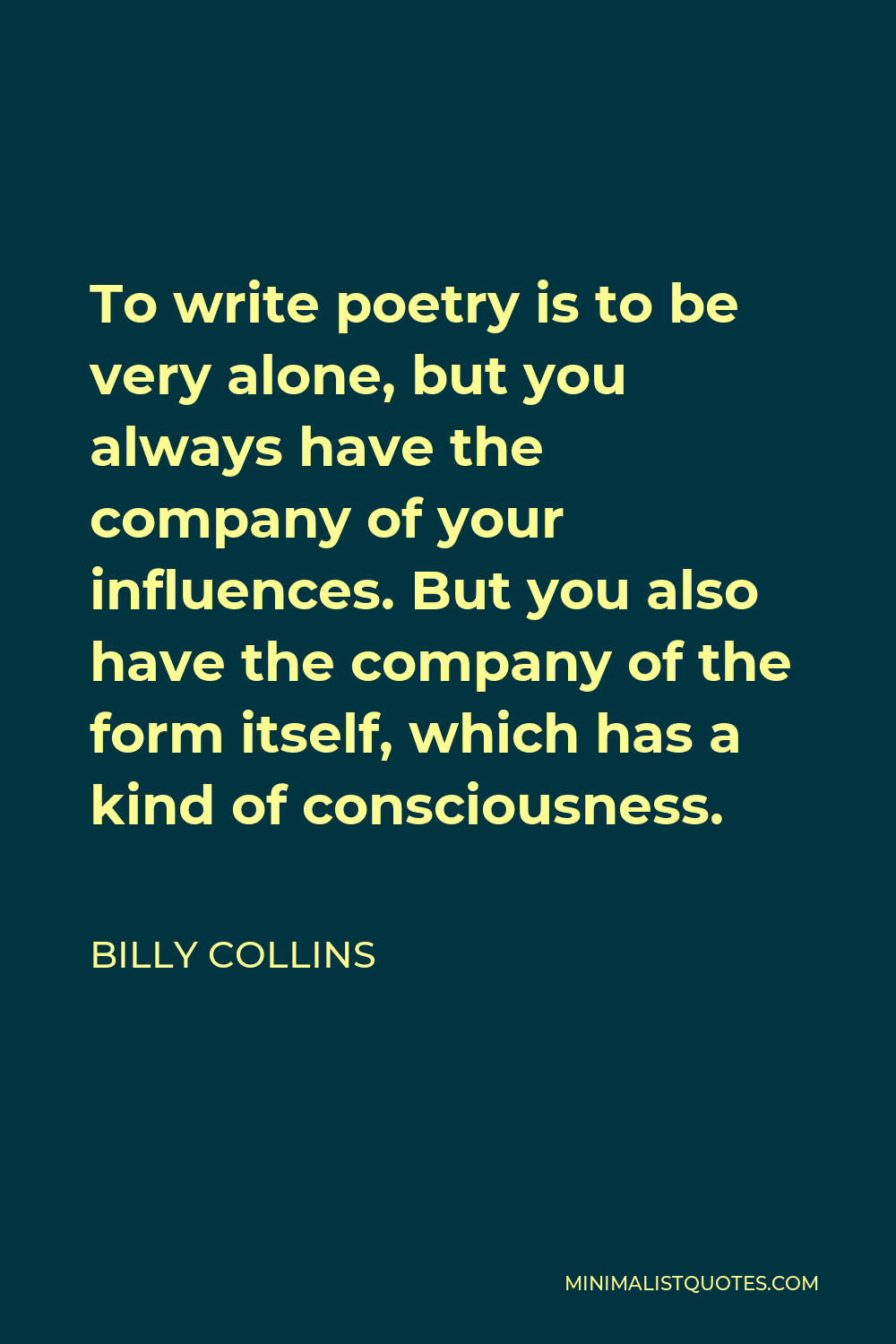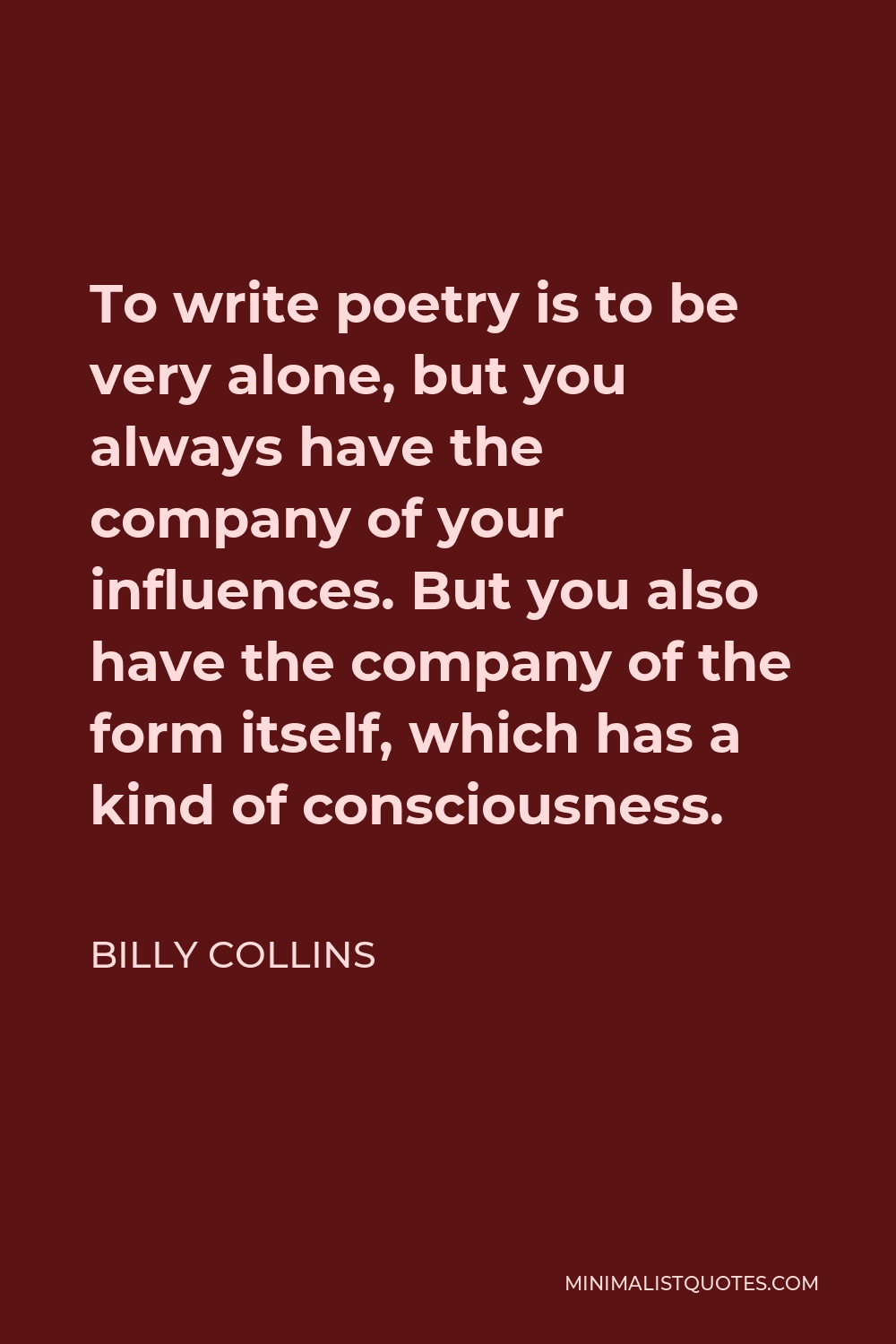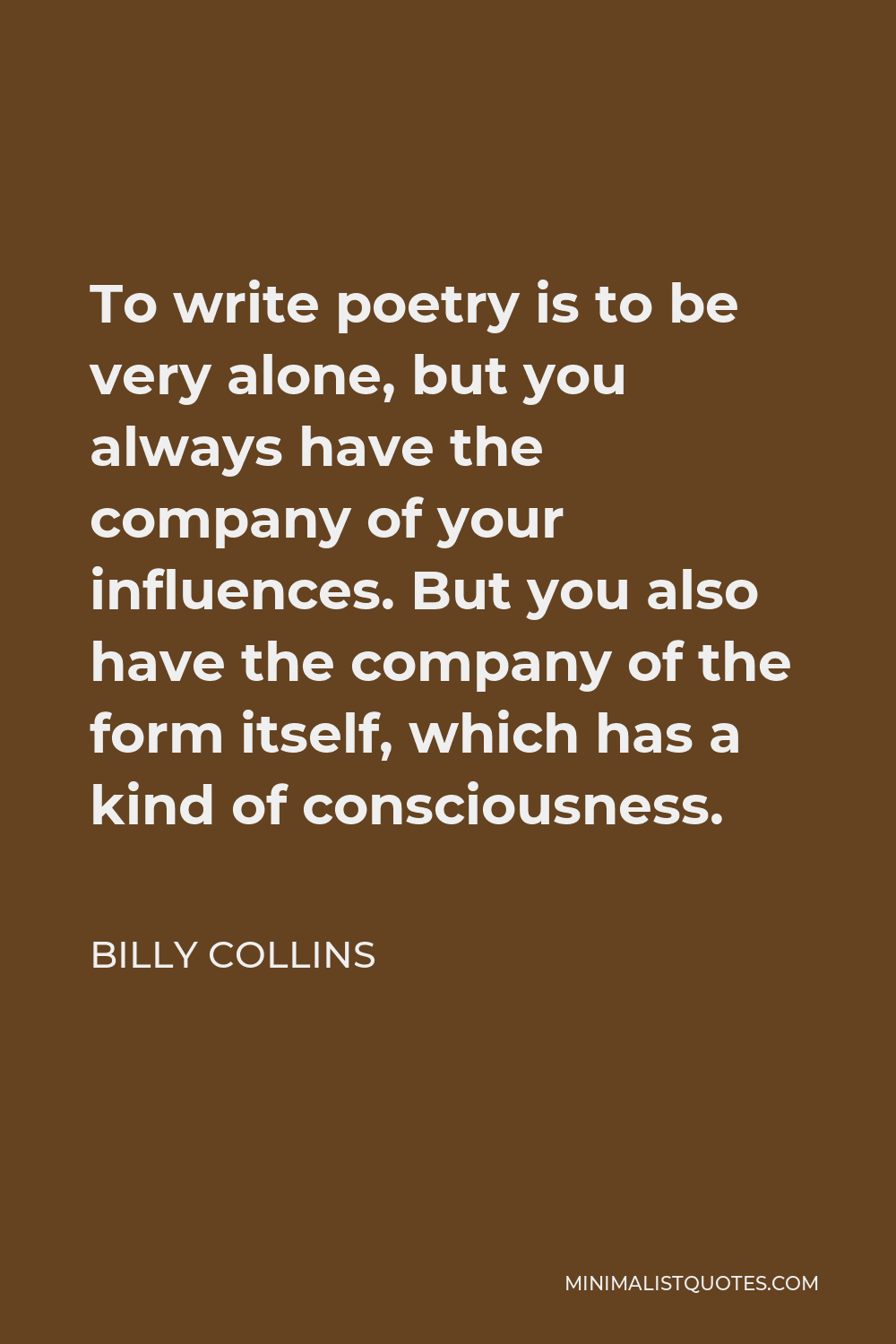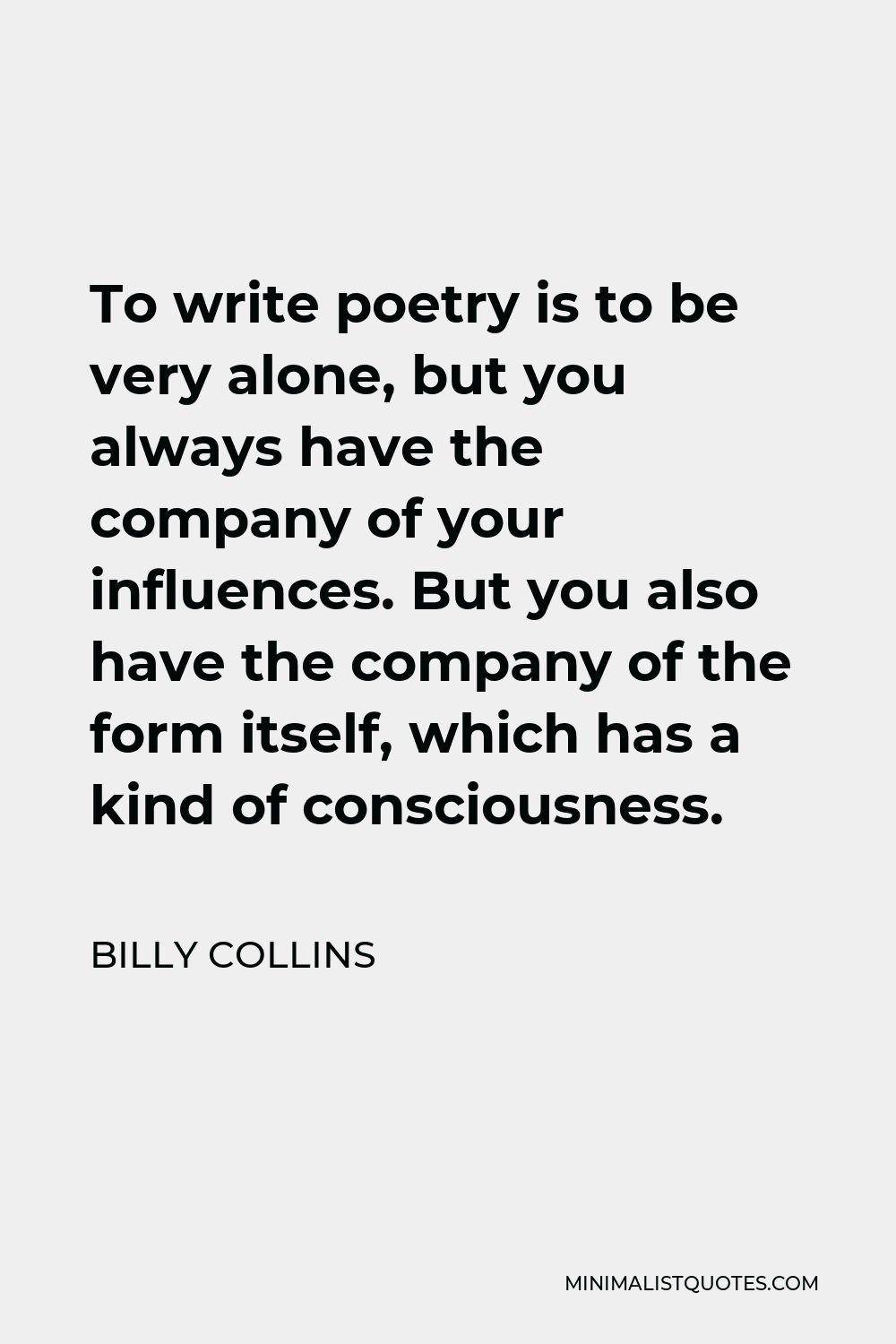There are just long gaps where I can’t find a point of insertion, I can’t find a good opening line.
BILLY COLLINSTo write poetry is to be very alone, but you always have the company of your influences. But you also have the company of the form itself, which has a kind of consciousness.
More Billy Collins Quotes
-





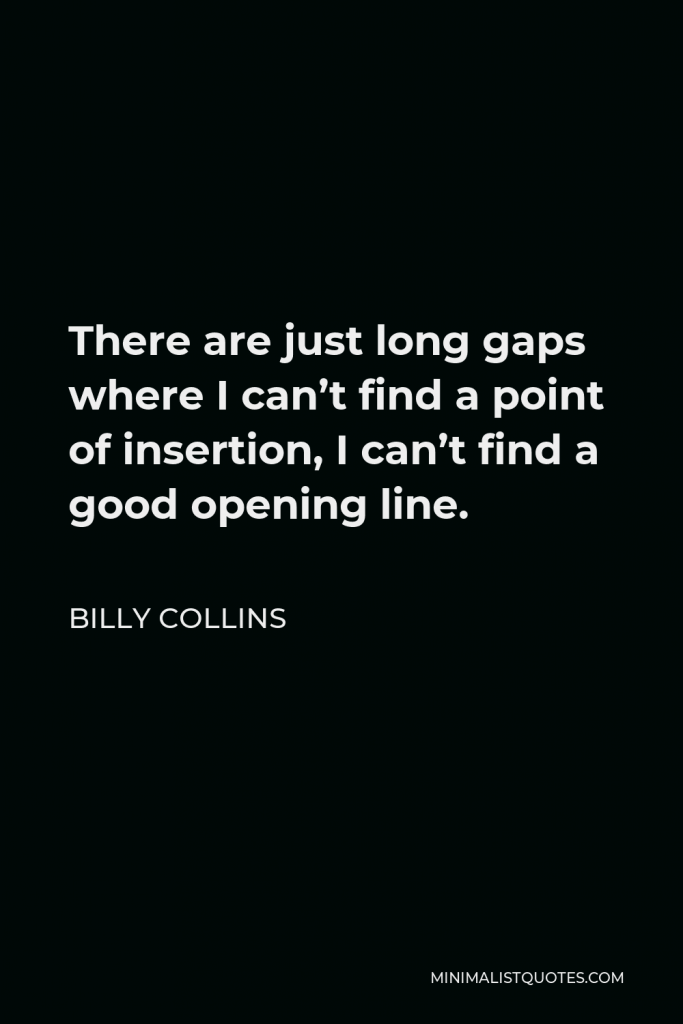

-





![Billy Collins Quote - When you get a poem [in a public place], it happens to you so suddenly that you don’t have time to deploy your anti-poetry deflector shields that were installed in high school.](https://minimalistquotes.com/images/when-you-get-a-poem-in-a-public-place-it-happens-t.jpg)
When you get a poem [in a public place], it happens to you so suddenly that you don’t have time to deploy your anti-poetry deflector shields that were installed in high school.
BILLY COLLINS -





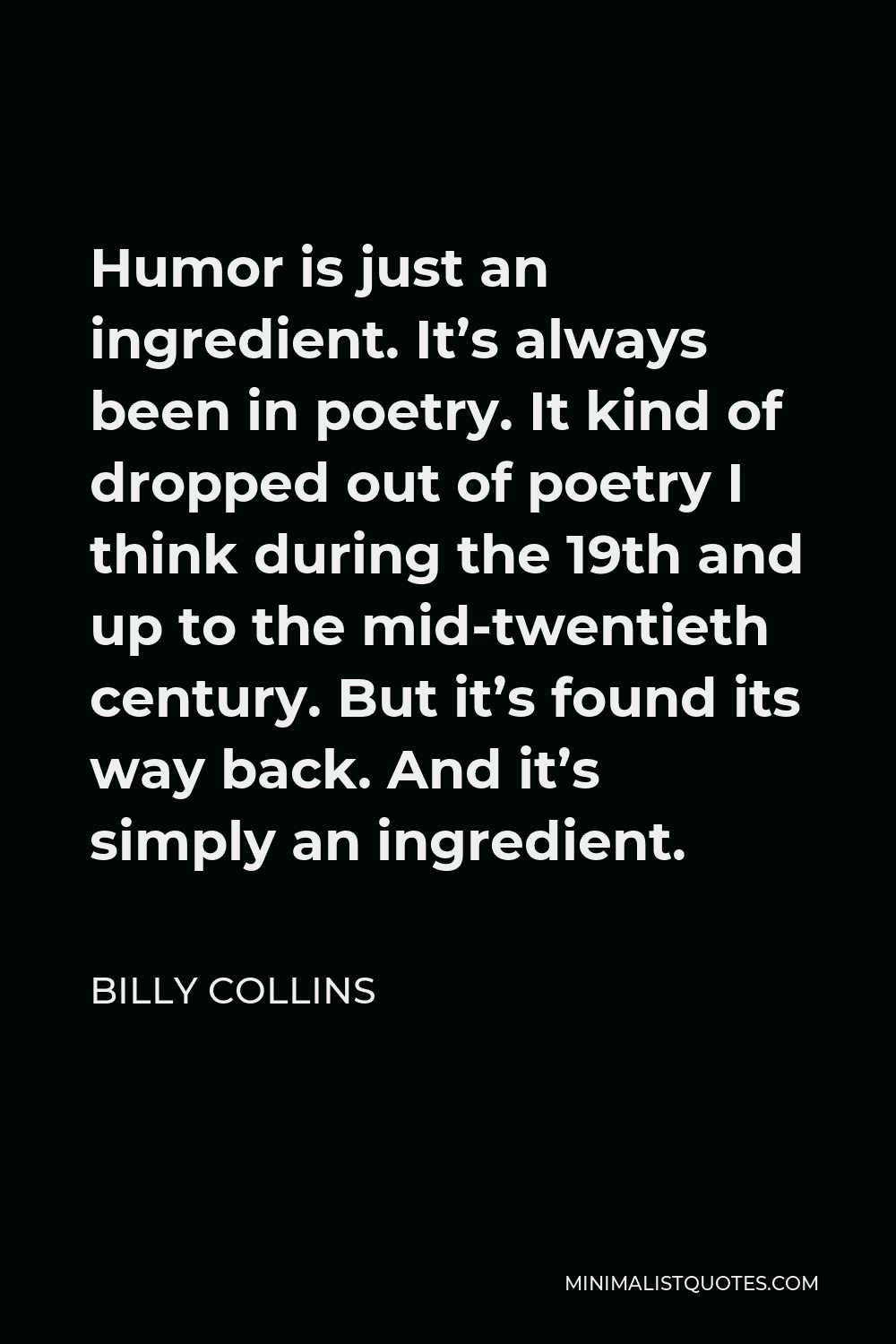
Humor is just an ingredient. It’s always been in poetry. It kind of dropped out of poetry I think during the 19th and up to the mid-twentieth century. But it’s found its way back. And it’s simply an ingredient.
BILLY COLLINS -





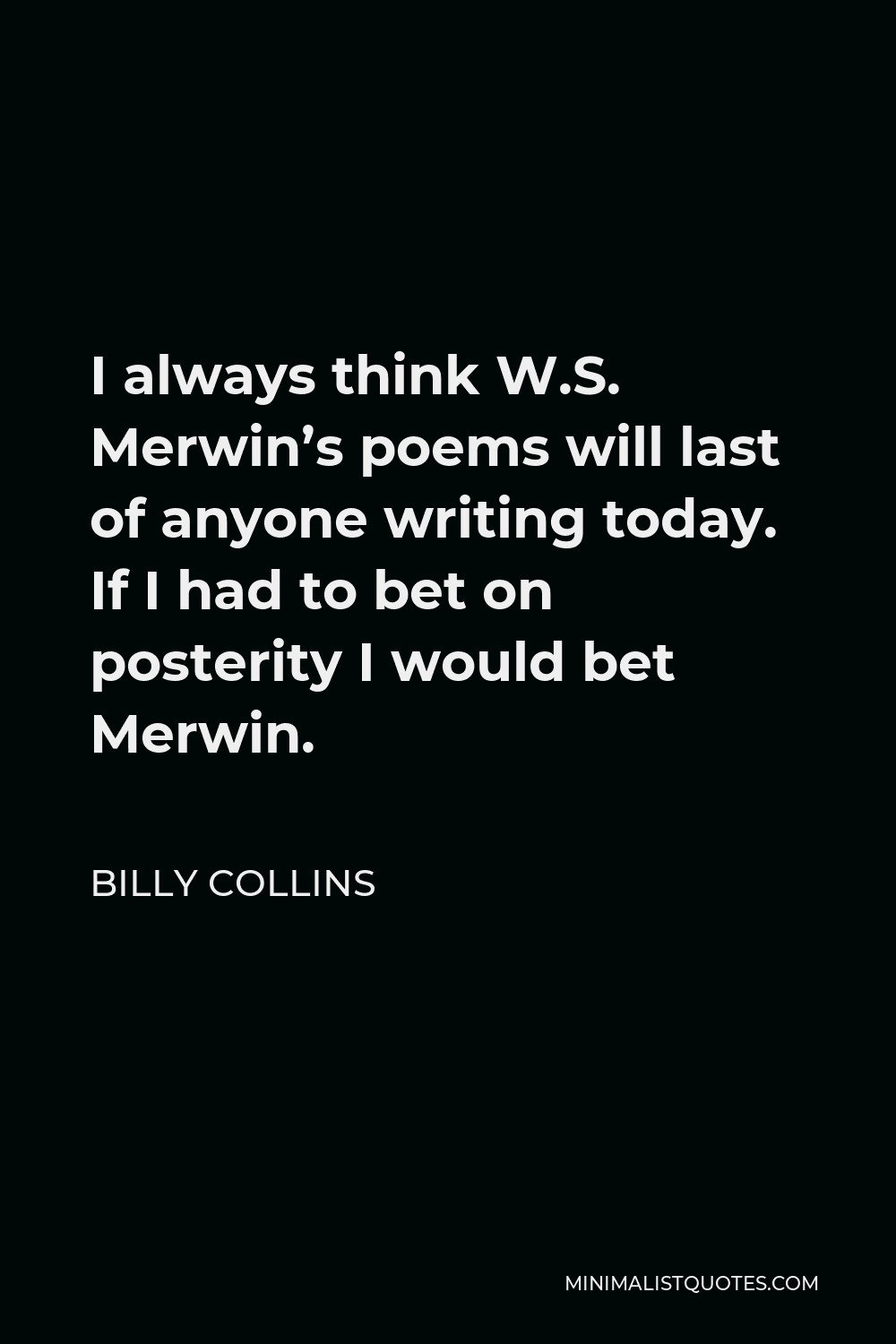
I always think W.S. Merwin’s poems will last of anyone writing today. If I had to bet on posterity I would bet Merwin.
BILLY COLLINS -





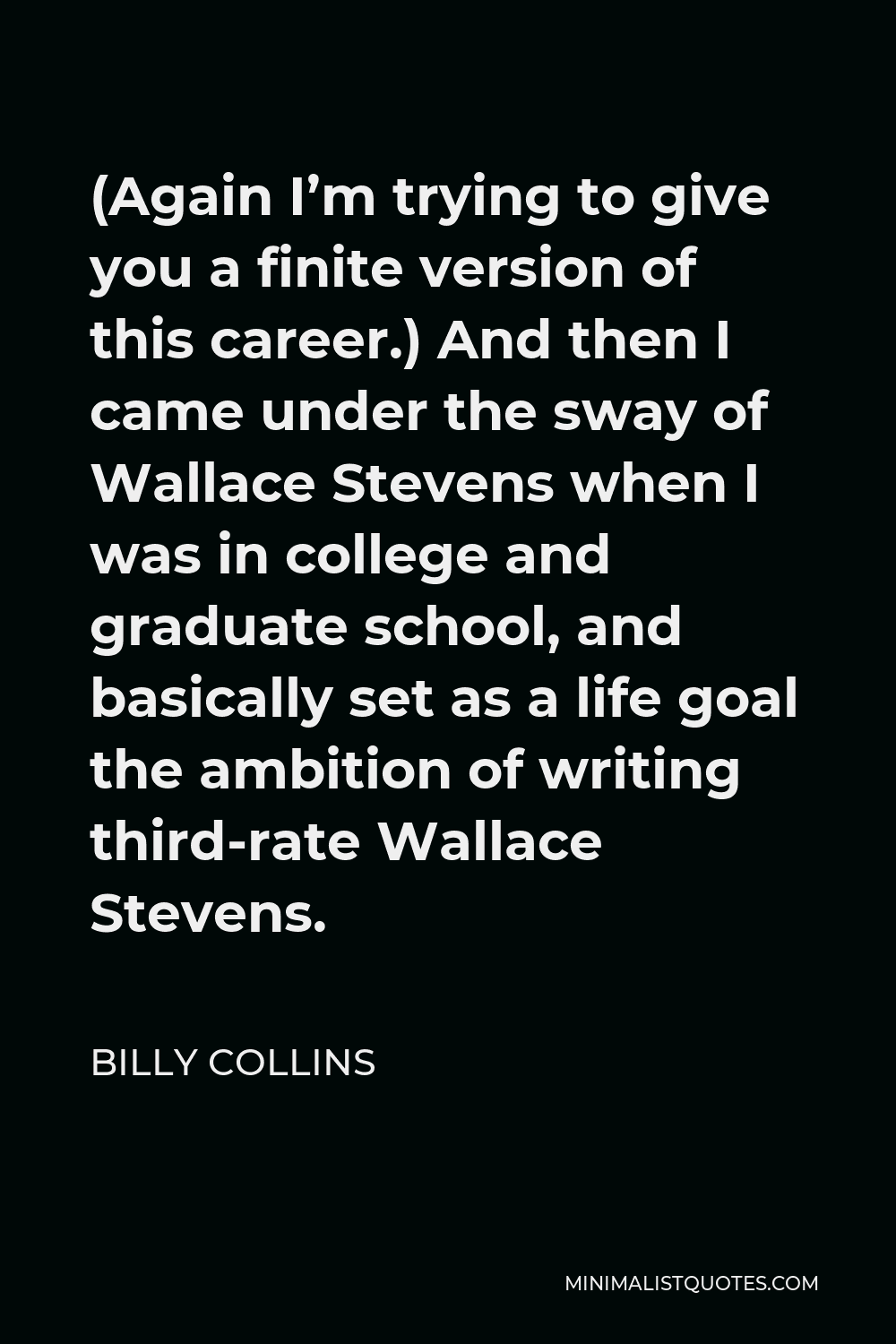
(Again I’m trying to give you a finite version of this career.) And then I came under the sway of Wallace Stevens when I was in college and graduate school, and basically set as a life goal the ambition of writing third-rate Wallace Stevens.
BILLY COLLINS -





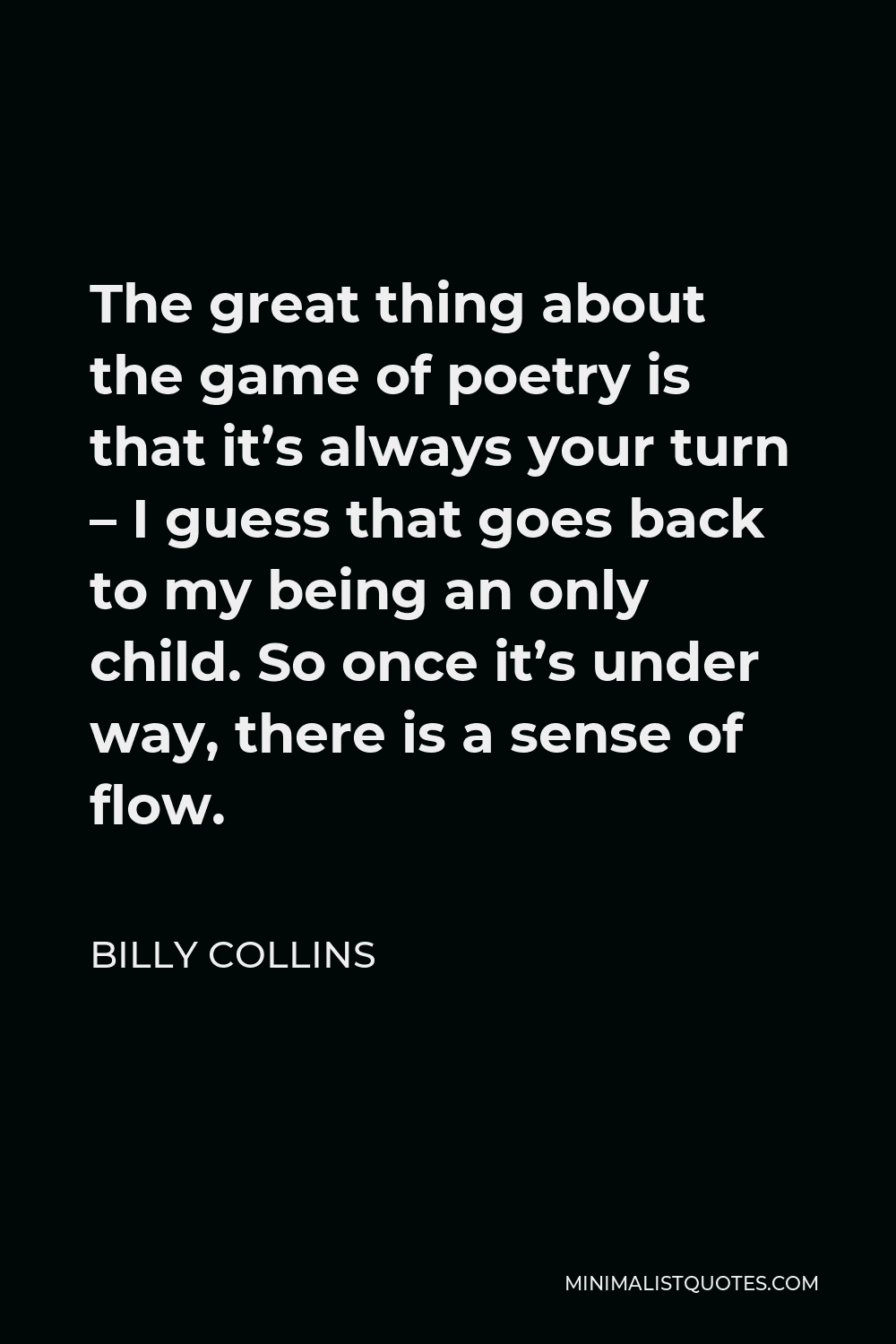
The great thing about the game of poetry is that it’s always your turn – I guess that goes back to my being an only child. So once it’s under way, there is a sense of flow.
BILLY COLLINS -





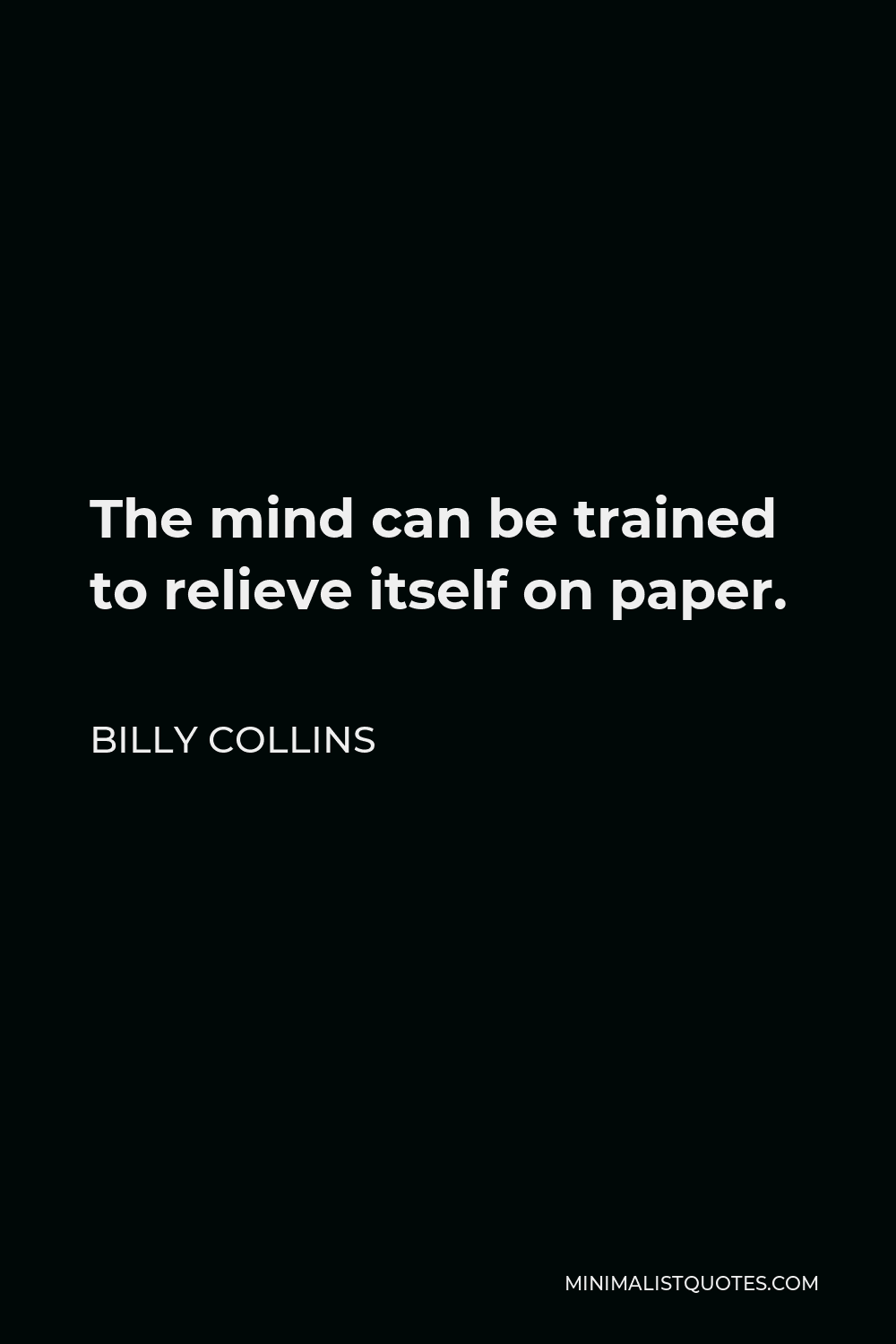
The mind can be trained to relieve itself on paper.
BILLY COLLINS -





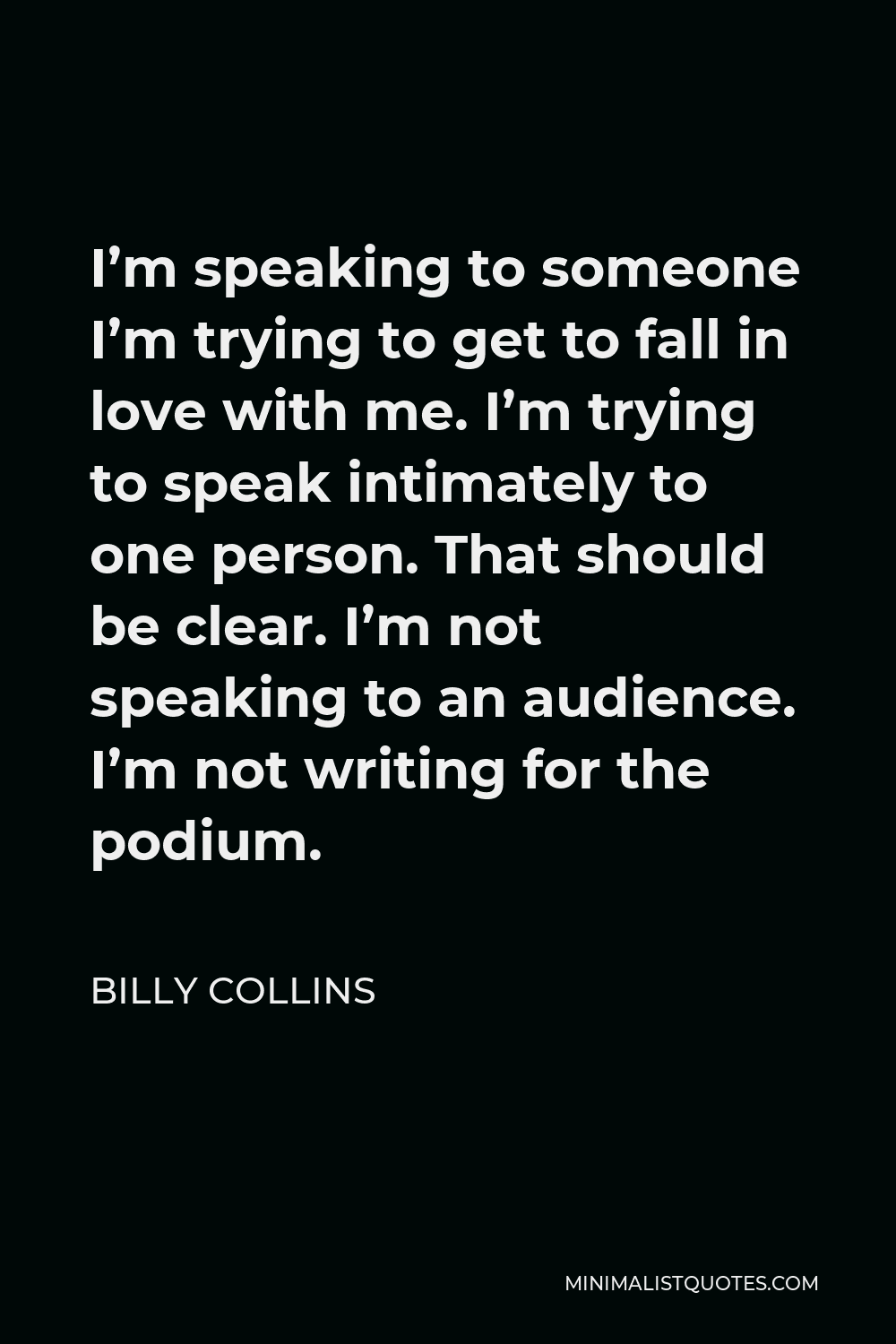
I’m speaking to someone I’m trying to get to fall in love with me. I’m trying to speak intimately to one person. That should be clear. I’m not speaking to an audience. I’m not writing for the podium.
BILLY COLLINS -





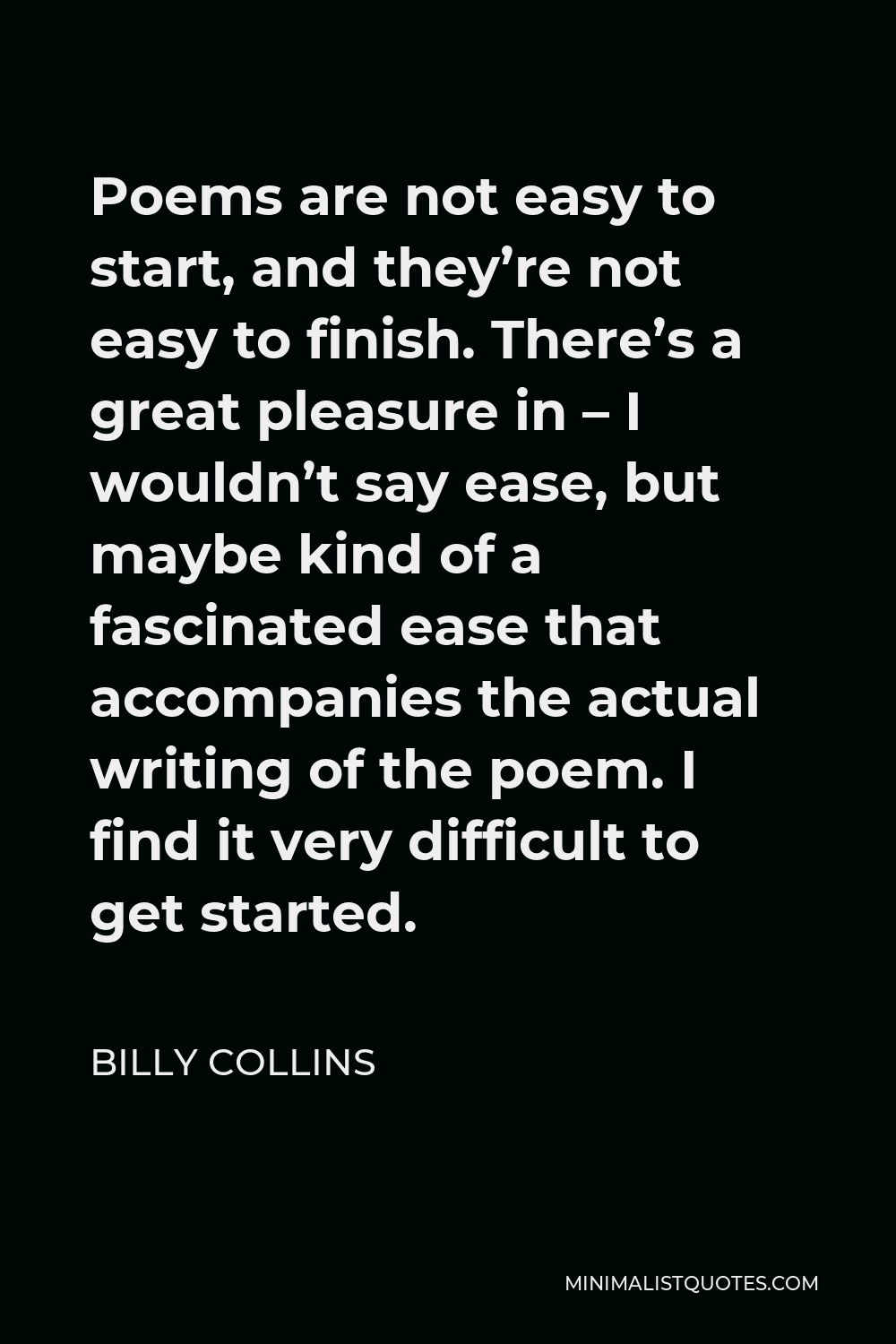
Poems are not easy to start, and they’re not easy to finish. There’s a great pleasure in – I wouldn’t say ease, but maybe kind of a fascinated ease that accompanies the actual writing of the poem. I find it very difficult to get started.
BILLY COLLINS -





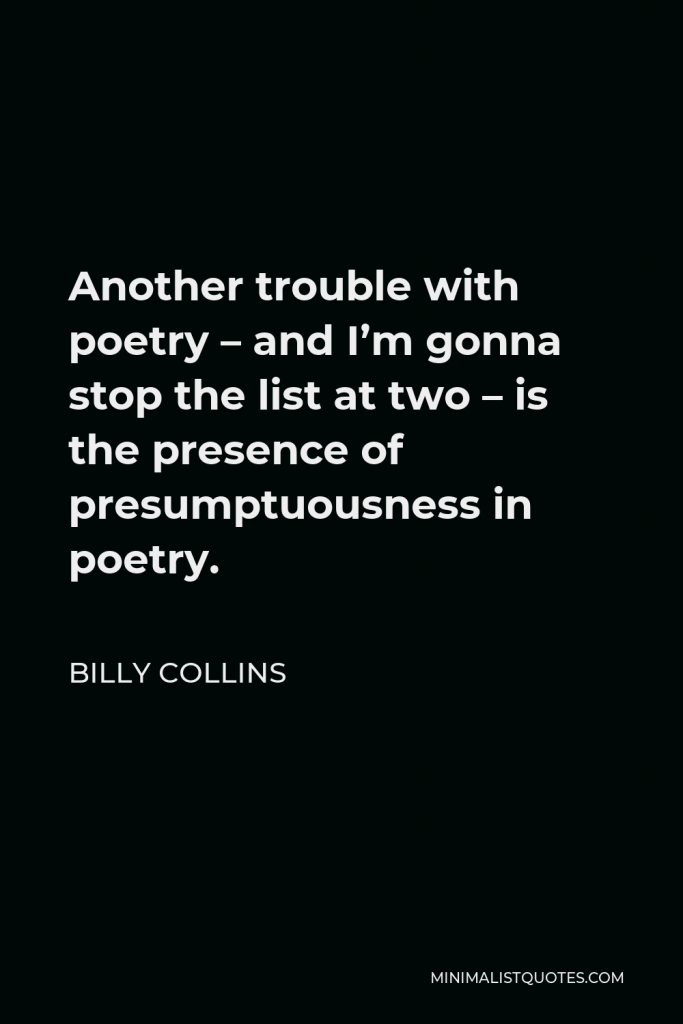

Another trouble with poetry – and I’m gonna stop the list at two – is the presence of presumptuousness in poetry.
BILLY COLLINS -





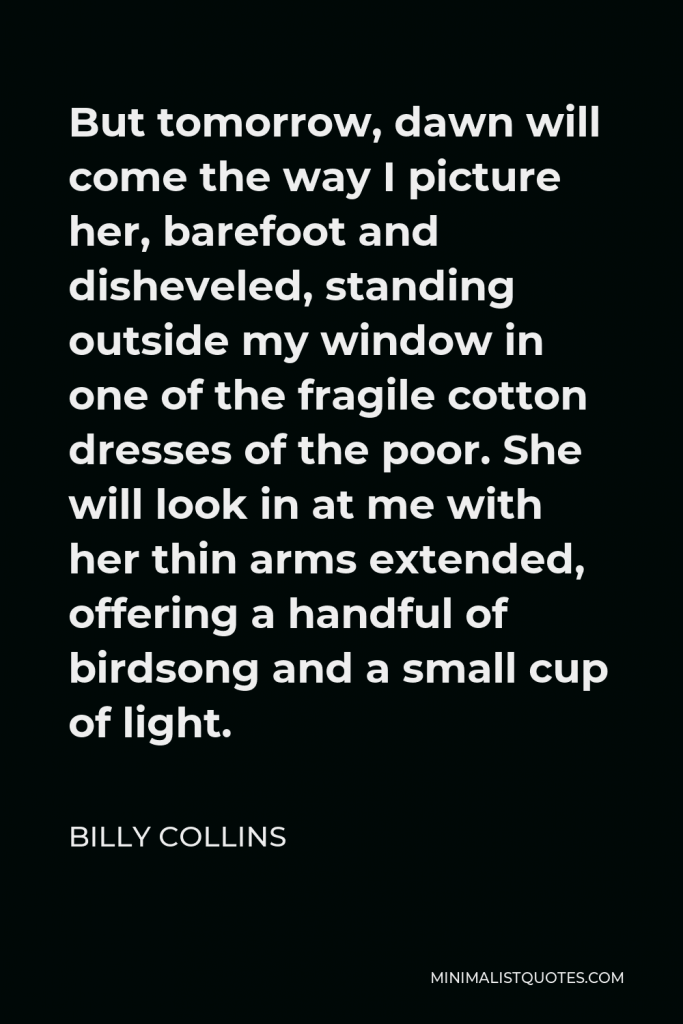

But tomorrow, dawn will come the way I picture her, barefoot and disheveled, standing outside my window in one of the fragile cotton dresses of the poor. She will look in at me with her thin arms extended, offering a handful of birdsong and a small cup of light.
BILLY COLLINS -





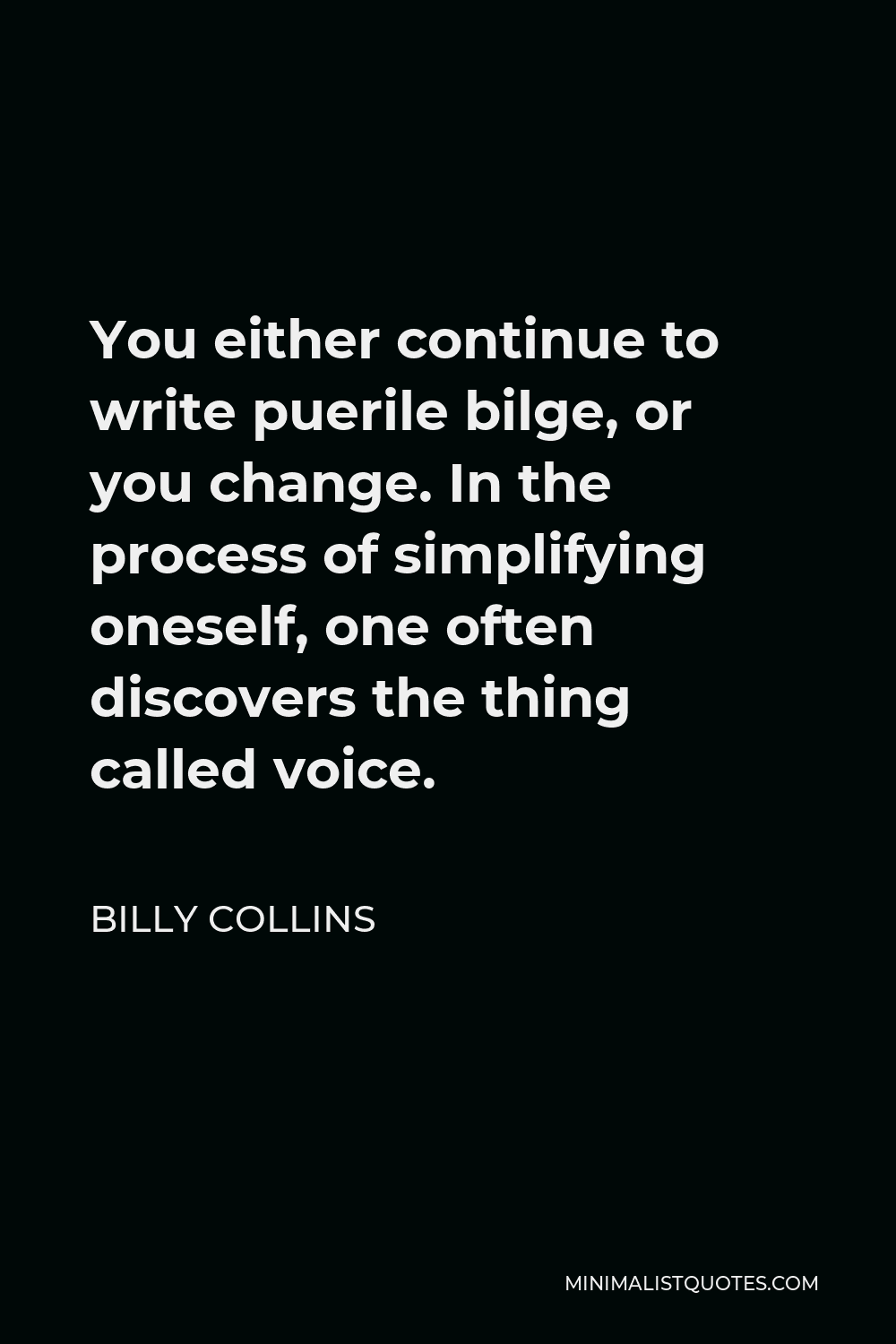
You either continue to write puerile bilge, or you change. In the process of simplifying oneself, one often discovers the thing called voice.
BILLY COLLINS -





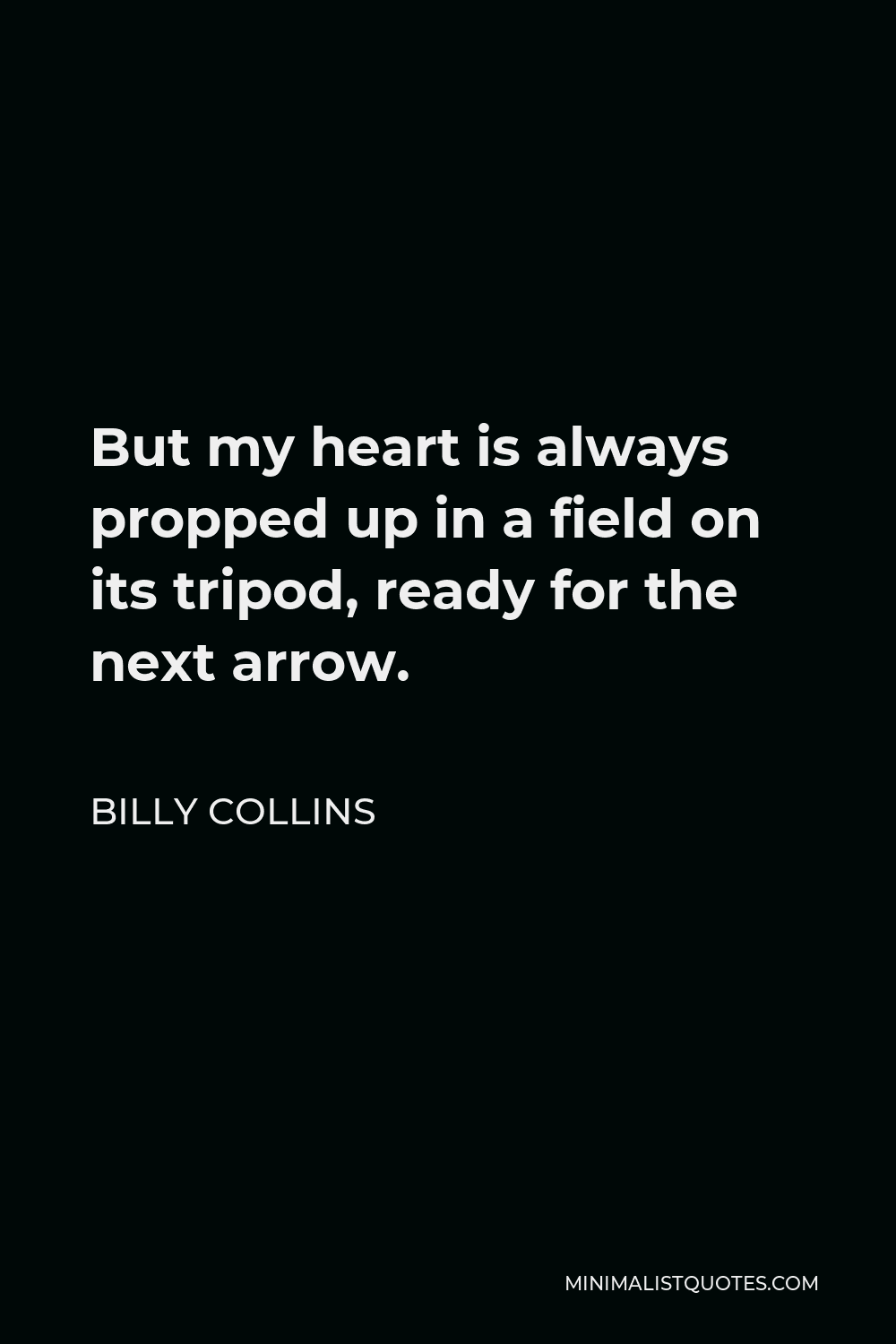
But my heart is always propped up in a field on its tripod, ready for the next arrow.
BILLY COLLINS -





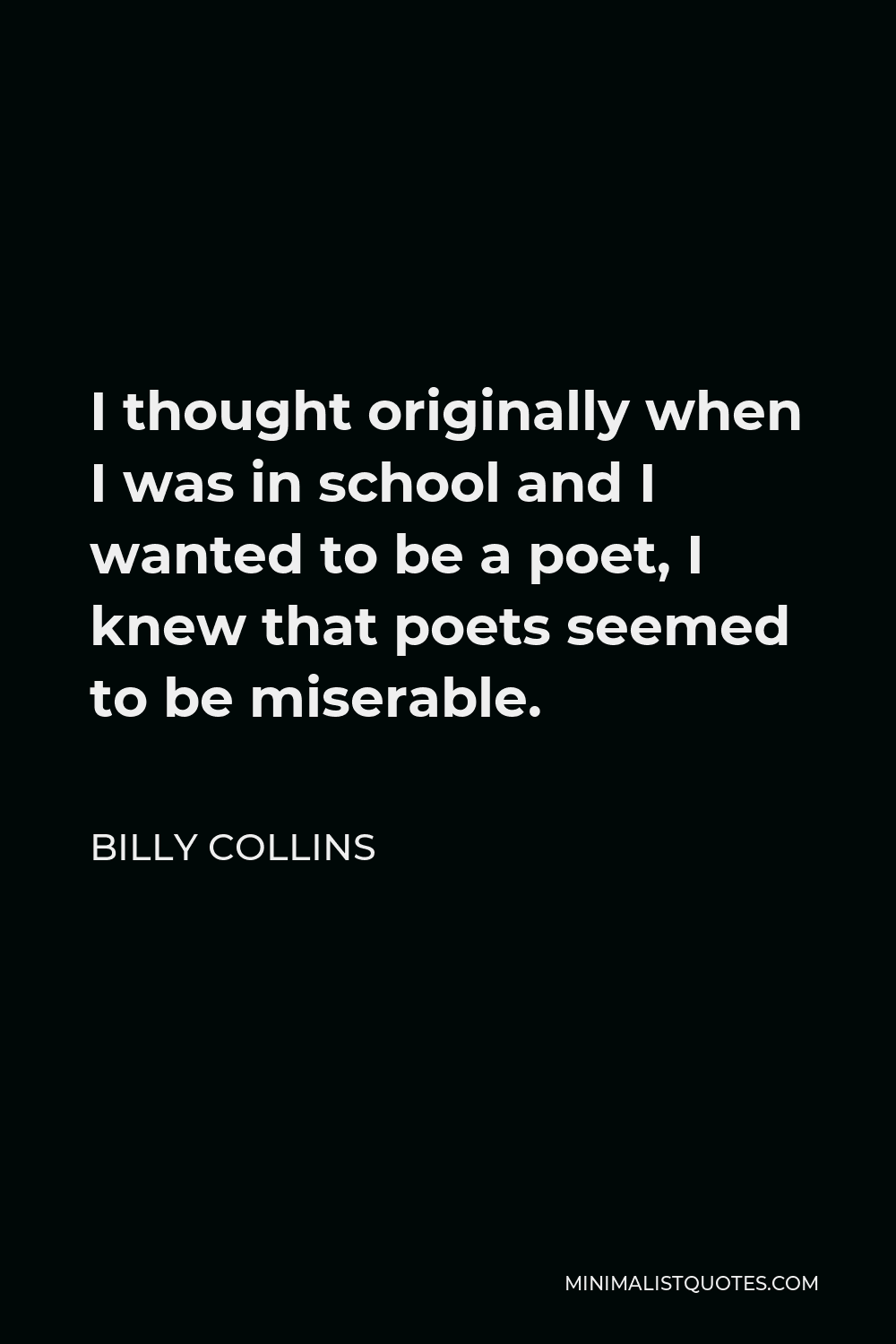
I thought originally when I was in school and I wanted to be a poet, I knew that poets seemed to be miserable.
BILLY COLLINS -





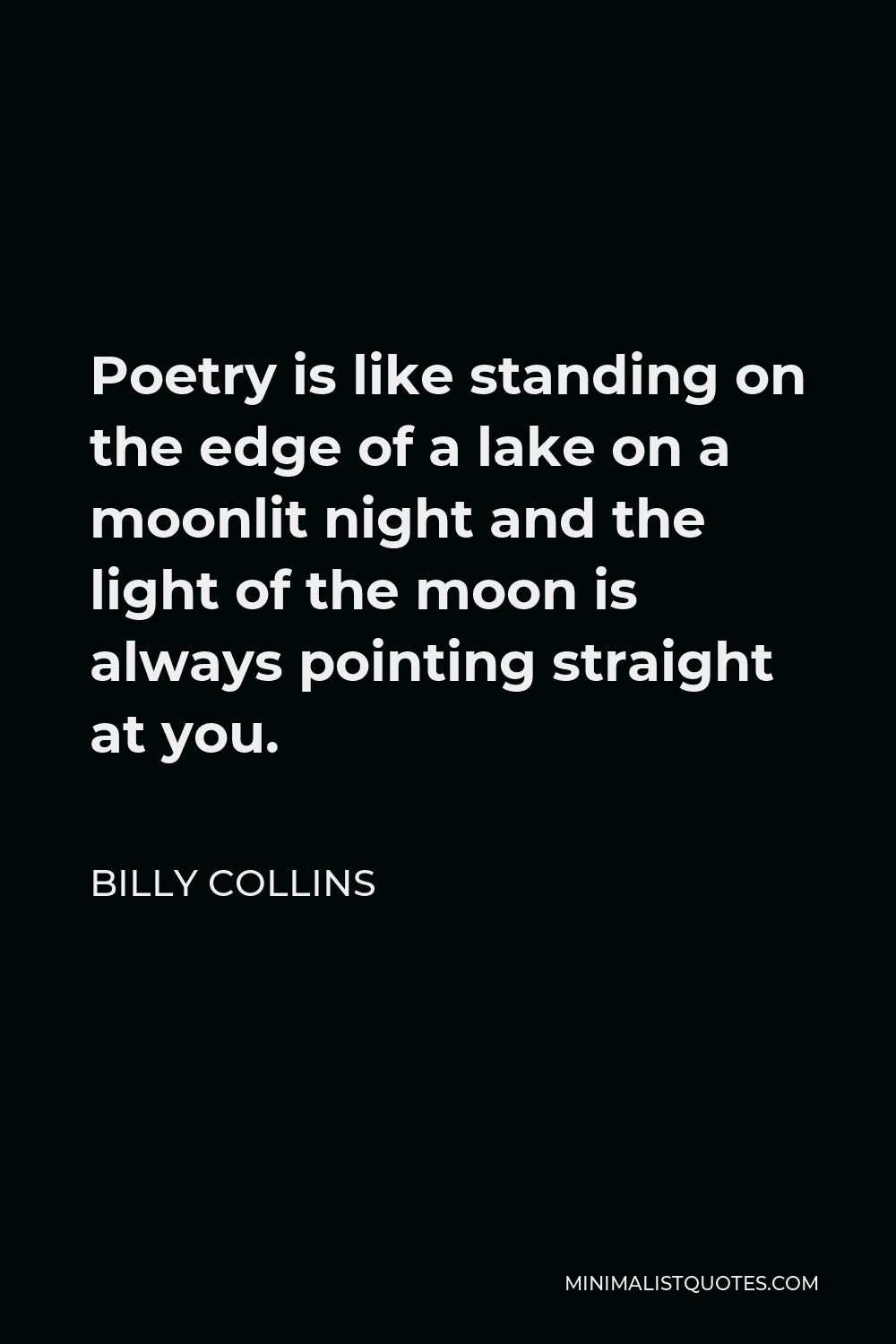
Poetry is like standing on the edge of a lake on a moonlit night and the light of the moon is always pointing straight at you.
BILLY COLLINS -





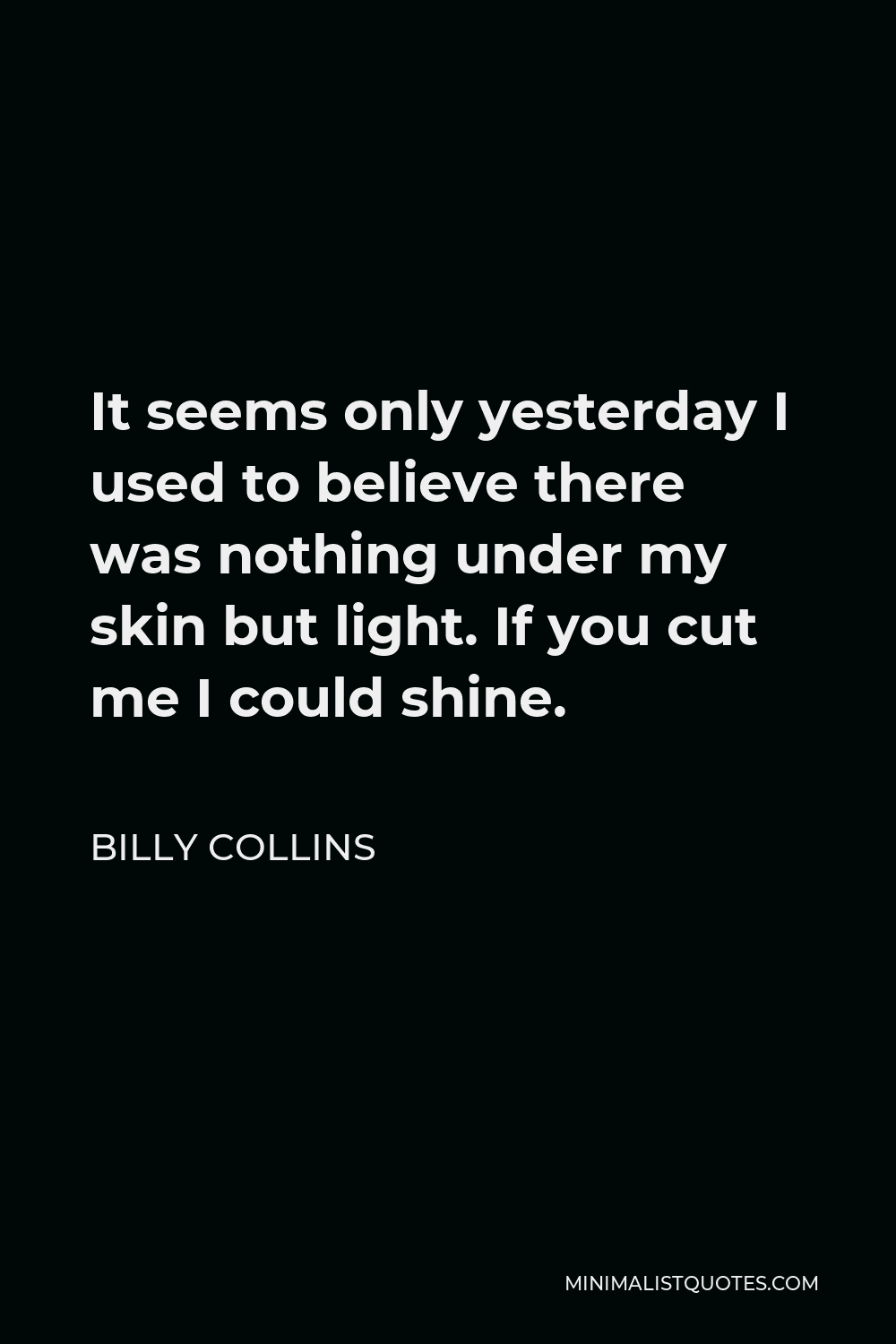
It seems only yesterday I used to believe there was nothing under my skin but light. If you cut me I could shine.
BILLY COLLINS
